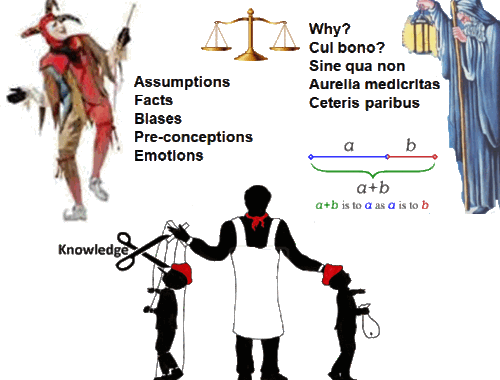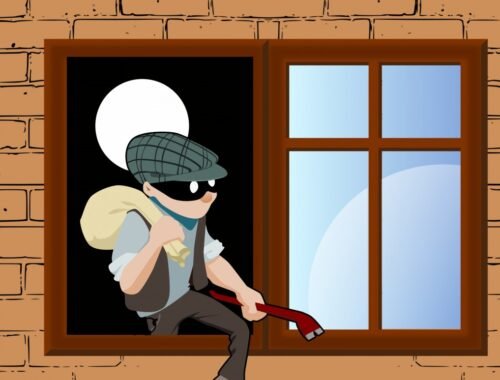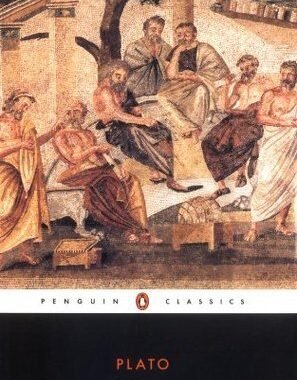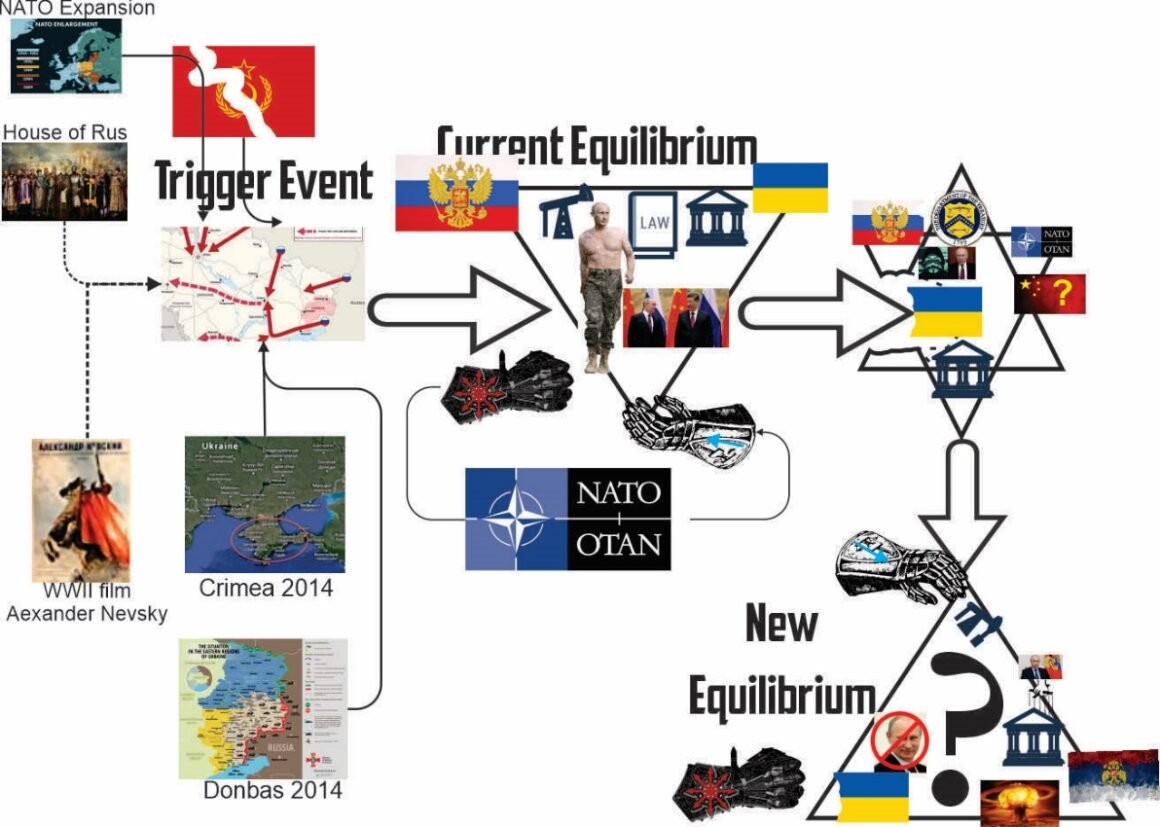
Thoughts on Ukraine, Part 1
Figure Conceptual Framework for Russian Invasion of Ukraine
I will be the first to admit that I really cannot understand Putin’s objectives and end state in Ukraine. I suspect that I am not alone in that regard. Listen to the news with the talking head experts and read the news and internet with their experts or people who think they are and the opinions are all over the place. Therefore, I cannot readily state what is going on in Ukraine. I can only offer some background, my thoughts, and potential outcomes.
The figure above uses the Pathbreaking Strategy Conceptual Framework to help navigate the situation.
Trigger Event
The key trigger event is the Russian invasion of Ukraine. The Russians built up forces and prepared for the invasion. All the way up to the invasion various experts had various opinions. Some thought the Russians would stop at the Donbas region, others speculated across the spectrum of potential objectives.
But the trigger event had several precursors, some of which are hundreds of years old.
Let start with the oldest. The House of Rus/Rurik, the founders of what became Russia, were from Ukraine. That is right, Russia began in Ukraine. The even more interesting fact that Russia does not talk about is they were Varangian Vikings. That is why Russia sees such a strong relationship with Ukraine and has such an interesting dynamic, almost a love/hate, with it.
The next precursor dates back to WWII. During the dark days, when Stalin needed to rally the Russians against the Germans, he made a patriotic movie. It was about the Battle of Lake Peipus fought against the Teutonic Knights in 1242 near Novgorod. The hero of the battle was Alexander Nevsky, for whom the movie they named. Nevsky was of the House of Rus/Rurik. In their hour of need, the Soviets (Russians) called upon Rurik’s line.
When we look at Crimea and Donbas, the situation gets just as interesting. The Russians claim, the “Soviets” transferred these areas from Russia to Ukraine. For the moment, let us just say there are a lot of Russians in these areas. The large Russian population was supportive of Russia and gave the Russians an excuse to remove them from Ukraine. If this is a valid motive, then the Baltics, with the large Russian populations and proximity, especially Estonia, to Russia need to be worried.
Putin’s address the day the invasion on 21 Feb 2022 confirms this linkage. He stated, “I would like to emphasise again that Ukraine is not just a neighbouring country for us. It is an inalienable part of our own history, culture and spiritual space.” In this address, he went to great lengths to explain how the Soviet Union stole land from Russia and gave it to Ukraine. He has also stated that it was a tragedy the Russian empire fell. The Soviet Union was another name for the Russian Empire. When I took Russian history in college the course and the textbook took pains to point that out. He has cited the fall of the empire and the subsequent eastward expansion of NATO many times as threats to Russian security. But he cleverly blames the Communist Party and Soviet government for the land given to Ukraine.
Pre-conflict Situation
The Current Situation is the situation just before the invasion. The dominate figure is Putin bare chested with military pants. This macho swagger is the image he likes to project. Full of confidence and vigor, he dominates his environment. So why Ukraine and why now? At least part of the reason is that he thought he could. He took two provinces away from Georgia in 2008 and the West did nothing. He took Crimea and sponsored break aways in two provinces in Donbas in 2014 and the west did nothing. But why not just take the Donbas and stop? Why the full invasion?
Perhaps the reason is Russia is at risk from internal pressures and even from China in Siberia. Russian birthrates and life expectancy are falling. There are many other internal stresses in Russia as well that potentially threaten his position and power. Could it be a case of now or never?
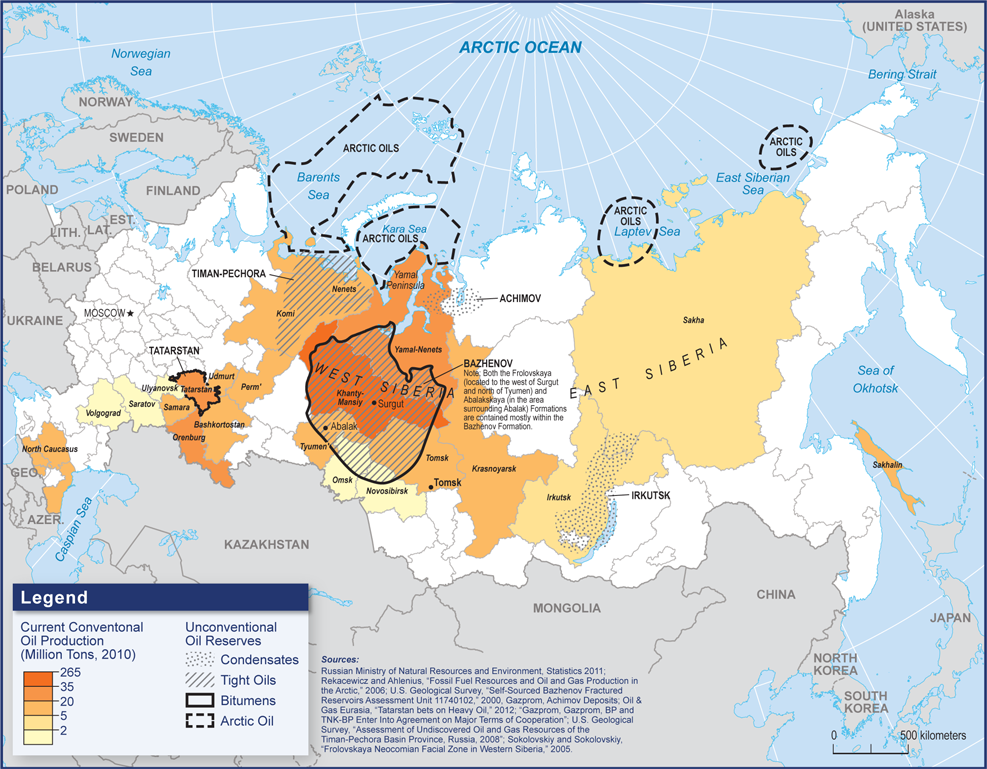
Most of Russia’s oil is in the east (Figure 2), where the Russian population is the sparsest. These reserves are increasingly difficult to reach and exploit.

Figure Natural Resource Map in the East/Siberia
Figure 3 tells a similar story with other resources. While Russia clearly has abundant natural resources, most are in the far east and increasingly difficult to extract.
Russia’s population is mainly west of the Urals (Figure 4) and away from these resources. Does this mean these resources are at risk? The evidence is mixed whether China seeks to move into Siberia. Analysts talked about this scenario ten years ago, but current analysis casts a dim light on the scenario. However, a 2021 documentary states, “The Kremlin accepts the growing Chinese presence to overcome the pandemic crisis.”
Could China and Russia have reached some agreements? Perhaps China understands theirs is a long game and Russia’s options are short game. They may be patient to wait for Siberian wealth in exchange for supporting Russia’s Ukrainian strategy and their support for China’s Taiwan strategy.
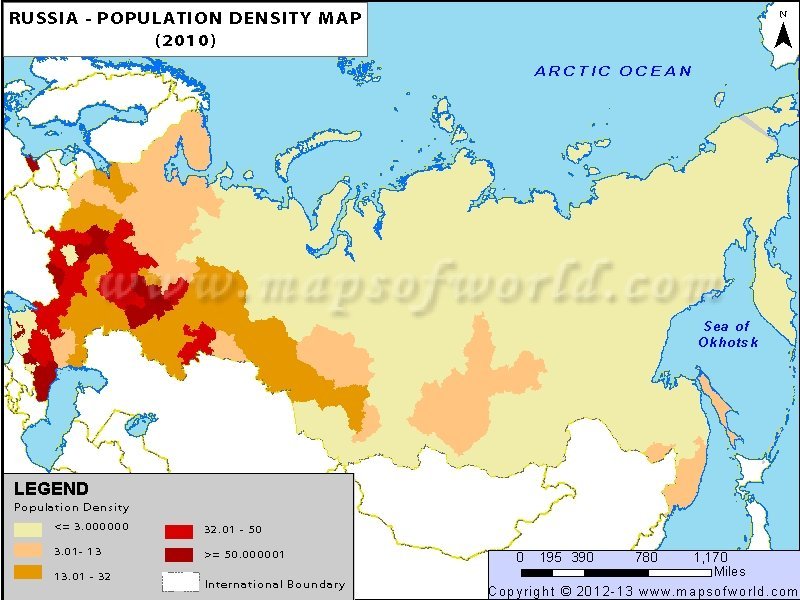
Figure Russian Population Densities
So if Putin thinks he has the eastern flank stablized for at least the near-term, he can afford to focus on the west. So what could his endgame be in Ukraine? Perhaps one or more of the following options:
- Formalize Russian control of Crimea and Donbas
- Create a puppet or at least a friendly government in Ukraine
- Annex all of Ukraine into a Greater Russia
The Punctured Equilibrium
Russia’s attack seems to have slowed and they have tried to open a dialog for peace negotiations in Belorussia, which Ukraine rejected since it is not neural territory. Some sources state Putin is calling for the Ukrainian military to take power into its own hands change the regime as a precursor to peace. The question is whether Putin is willing to stop if he gets at least the first objective above or if he is willing to keep pouring resources into Ukraine to get either the second or third option. Will Putin stop if there is a regime change? Will Ukraine even consider that?
Potentially, the answers are tied to western responses and the effect they have on Russia and the amount of aid the west provides to Ukraine.
The US economic sanctions on Russia do not take effect until 26 March. That gives Russia 30 days to accomplish objects before these sanctions take a bite. Did the US give Putin a window to accomplish one or more of the potential objectives? If Russia continues offensive operations and steps up attacks against civilian targets, will the west implement more immediate sanctions?
Non-government entities have also entered the fray. Anonymous conducted cyber attacks on Russian news media sites. Have they/will they stop there or will they go after Russian financial systems and infrastructure? What are the long-term implications for world order if they can and will do that?
What will China do? If the Russian operations do not achieve their objectives, will they withdraw their tacit support or even implement sanctions of their own? Perhaps even accelerate their own potential take of Siberia if Russia is seriously weakened over Ukraine?
What will Russia do if it cannot accomplish its objectives? Putin has stated they may use tactical nuclear weapons. Will it simply withdraw back to Russian and Belorussia and the Donbas? Or will it bet everything on Ukraine? If so, why? Clearly the shared history culture is not justification for betting the future of Russia as Putin will do if he uses tactical nuclear weapons. But will a wounded bear lash out regardless of implications?
The New Equilibrium
Clearly, there are too many questions in the punctured equilibrium phase to definitively state what the future holds for the new equilibrium. But perhaps we can paint a few scenarios suggested by the icons in Figure 1’s New Equilibrium state.
- Putin establishes a puppet regime in Ukraine and formally annexes Crimea and Donbas. If Ukraine continues to resist and Kyiv does not fall, this could be unlikely. The key may be how much combat aid the west provides to Ukraine in the form of advanced weapons and supplies.
- Russia wins and absorbs Ukraine into a Greater Russia. The longer Ukraine holds out and sanctions against Russia start to take effect, the lower the likelihood of this happening. Will Ukraine then continue to resist? Will it conduct an insurgency against Russia as it did against the Nazi’s in WWII? Can Russia occupy and subdue a belligerent population? This could prove a bitter pill for Russia to swallow.
- Russia extracts permenant control of Crimea and Donbas as part of a peace settlement. Still a potential option. It recognizes facts on the ground as they exist now.
- Putin uses tactical nuclear weapons to try to save operations. He has said he may do this. And if he sees his power threatened, he may do this. If so, the key questions will be:
- Does he only use them in Ukraine? If so, what will NATO do? Ukraine is not part of NATO, but nuclear weapons are a game changer.
- Why the operations against Chernobyl? Does Putin want to use the radioactive contamination as a form of dirty bomb?
- Does he use them against aid moving through Poland and into Ukraine. That is a direct attack on a NATO member and would invke article V of the NATO treaty. A Putin that plans to stay in power may be reluctant to do that. A Putin that sees no future for himself may.
- Putin fails and:
- Ukraine remains independent. Will NATO extend Ukraine membership? Potentially to prevent another attempt from Russia. Would this provoke Russia? Perhaps it depends on the nature of the new equilibrium.
- There is regime change in Russia. That is a potential outcome if Putin’s gamble fails. Will it be quick or will it provoke civil war in Russia? I suspect that depends on which way the military goes. Would taking out Putin effect the regime change or would it take more?
- Russia is significantly weakened as a world power
Not all of these three options has to happen. Russia could withdraw and Putin remains in power. I would suspect the odds are, however, that Russia withdraws without accomplishing anything, Putin’s days are numbered. If Russia does its own regime change and approaches the west for collective security, perhaps it saves the state. Few remember, but there was once discussion of Russia joining NATO.
Concluding Thoughts
There is still quite a bit of uncertainty today, but within a week, much can happen. If Putin was prudent, he would push for a peace that formally cedes Russia Crimea and Donbas. He can claim victory. But is Putin prudent? That is the question. Perhaps we will soon find out. Putin’s claims that the current Ukrainian government are “Nazis” tends to indicate that he at least wants regime change. If the Ukrainian president continues to provide inspirational leadership, that may be tough to do, especially if Russian special forces find a way to assasinate him and make him a martyr.



